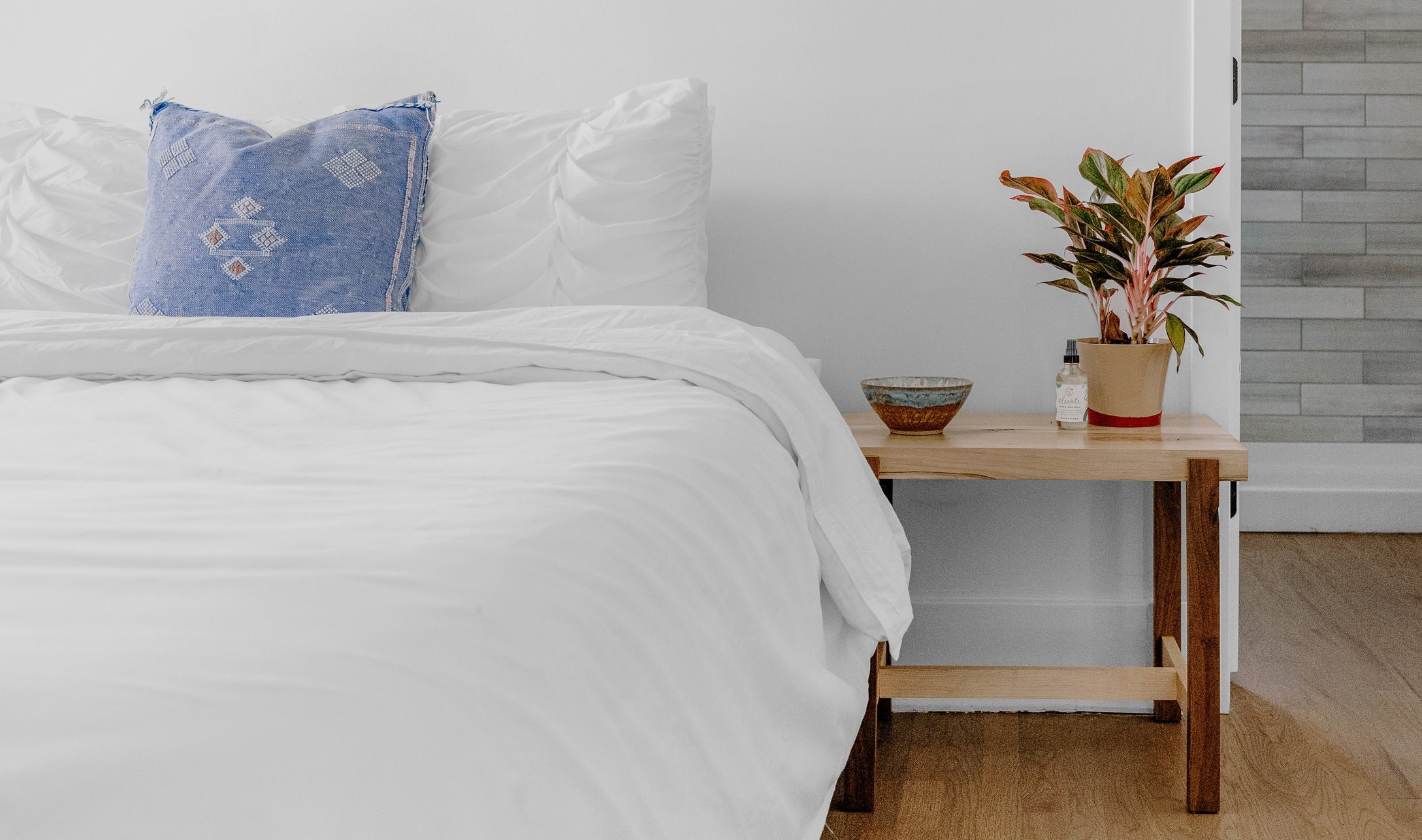Understanding the Effects of Sleep Deprivation
Not sleeping well is often brushed off as a minor inconvenience—something a strong cup of coffee can fix. But the reality is that consistent lack of sleep can take a serious toll on both your mental and physical health. It’s more than just feeling groggy in the morning; sleep deprivation affects focus, mood, immunity, and even long-term well-being.
The first step in addressing sleep deprivation is recognizing its impact. Fatigue, heightened stress, and difficulty concentrating are all red flags that shouldn’t be ignored. Over time, poor sleep habits can contribute to more serious health concerns, such as weakened immunity, increased risk of chronic conditions, and emotional instability.
The good news? You can improve your sleep with the right strategies, like a sleep drink. By understanding how rest affects your body and mind, you can take small, actionable steps to restore energy, enhance focus, and build healthier routines.
What Is Sleep Deprivation?
So, when does a poor night’s rest or a few TV-fuelled late evenings become a problem?
Sleep deprivation isn’t just about staying up too late once in a while—it’s a consistent lack of quality rest that disrupts the body’s ability to function at its best. This is not just about the number of hours slept but also the depth and effectiveness of each sleep cycle.
The fact is, when sleep is repeatedly cut short or disrupted, your body misses out on crucial processes like cell repair, memory consolidation, and hormone regulation.
Each night, the brain moves through different sleep stages, including non-REM and REM sleep. These stages play essential roles in physical recovery, cognitive function, and emotional balance. When you're sleep deprived, the effects can be immediate—grogginess, trouble concentrating, and increased stress—or long-term, weakening the immune system and impairing overall well-being.
Common Causes of Sleep Deprivation
Many factors can lead to poor sleep, and often, they stack up over time.
A demanding work schedule might mean waking up early and staying up too late. Technology use—especially screens—can delay the body’s natural production of melatonin, making it harder to fall asleep. Stress and anxiety create a cycle of restlessness, where worrying at night leads to exhaustion during the day, which in turn fuels more stress.
Here are some of the most common culprits behind sleep deprivation:
- Busy schedules: Long work hours, early wake-up times, and late-night responsibilities can cut into valuable rest.
- Technology overuse: Blue light from screens (phones, tablets, TVs) suppresses melatonin, making it harder to fall asleep.
- Stress and anxiety: Racing thoughts at night? That’ll do the trick. This can keep the brain in overdrive, making relaxation difficult.
- Environmental disruptions: Noisy neighbors, bright lights, uncomfortable room temperatures, or an unsupportive mattress can all interfere with quality sleep.
- Inconsistent sleep routines: Irregular bedtimes and wake-up times disrupt the body's internal clock, leading to difficulty falling asleep and staying asleep.
- Diet and lifestyle choices: Consuming caffeine late in the day, eating heavy meals before bed, or drinking alcohol in the evening can all negatively affect sleep.
- Medical conditions: Issues like sleep apnea, restless legs syndrome, chronic pain, or hormonal imbalances can significantly impact rest.
The good news is that most sleep struggles have solutions. Small changes—like reducing caffeine in the afternoon, setting a phone-free wind-down routine, or adjusting bedroom conditions—can lead to noticeable improvements.
Professional guidance or sleep medicine may sometimes be needed to address sleep disorders or underlying medical conditions. The key is to identify what’s disrupting sleep and take gradual, sustainable steps to restore healthy patterns.
How Much Sleep Is Enough?
The ideal amount of sleep depends on factors like age, lifestyle, and overall health. There’s no universal number that fits everyone, but general guidelines provide a helpful starting point.
Getting enough sleep isn’t just about resting—it’s when the body repairs itself, the brain processes information, and energy stores are replenished. Getting enough quality rest improves focus, mood, and overall well-being.
Recommended Sleep Duration by Age
The National Sleep Foundation offers these general sleep recommendations based on age:
- Newborns (0–3 months): 14–17 hours
- Infants (4–12 months): 12–16 hours (including naps)
- Toddlers (1–2 years): 11–14 hours (including naps)
- Preschoolers (3–5 years): 10–13 hours (including naps)
- School-age children (6–12 years): 9–12 hours
- Teenagers (13–18 years): 8–10 hours
- Adults (18–64 years): 7–9 hours
- Older adults (65+ years): 7–8 hours
While these numbers serve as a guide, individual needs vary. Some people function well on six and a half hours, while others need a full nine to feel their best. The key is tuning into how you feel throughout the day. You may not be getting enough rest if you’re consistently sluggish, irritable, or unfocused.
A sleep capsule like Beam’s Dream Capsule right before bed can be a great sleep booster for adults who might be struggling to get their nightly Zs.
It’s also important to recognize that sleeping too much—known as hypersomnia—can signal an underlying issue. If long sleep sessions still leave you feeling exhausted, it may be worth discussing with a healthcare provider. The goal is to find a sleep schedule that leaves you feeling energized, focused, and ready to take on the day.
Factors Affecting Individual Sleep Needs
Everyone’s sleep requirements can shift based on health, lifestyle, and environment. Some key factors include:
- Physical activity levels: Intense exercise or physically demanding jobs may increase the need for rest.
- Stress and mental health: High stress, anxiety, and conditions like depression can affect sleep quality and overall sleep needs.
- Chronic illnesses and recovery: Autoimmune conditions, infections, and injuries can increase the body's demand for restorative sleep.
- Genetics and circadian rhythms: Some people naturally thrive as early risers, while others feel more alert in the evening.
- Work schedules and lifestyle habits: Shift work, inconsistent bedtimes, and excessive screen time can all disrupt the body’s internal clock.
One of the best ways to determine your unique personal sleep needs is to track how you feel after different amounts of rest. If possible, try waking up without an alarm for a few days to see how much sleep your body naturally takes. Using a sleep tracker can also provide insights into sleep duration and interruptions.
Physical Effects of Sleep Deprivation
Skimping on sleep doesn’t just lead to grogginess—it affects nearly every system in the body. From immune function to heart health and metabolism, sleep plays a vital role in keeping things running smoothly.
Impact on the Immune System
Your immune system works around the clock to fight off infections, repair cells, and respond to health threats. But without adequate sleep, it doesn’t function at full capacity.
Studies show that chronic sleep deprivation can weaken immune responses, making you more susceptible to colds and flu and even reducing the effectiveness of vaccines. That’s why medical professionals often recommend prioritizing rest before and after immunizations—it gives your body the best chance to build strong defenses.
Good nutrition and supplements can help support your immunity, but they can’t fully replace the benefits of quality sleep. Sleep may be the missing piece if frequent colds, lingering fatigue, or slow recovery times have become the norm.
Cardiovascular Risks
Sleep is a natural reset for the heart as well. During deep rest, blood pressure drops, stress hormones decrease, and the body works to repair damaged tissues.
When sleep is disrupted or cut short, this recovery time is lost. Over time, chronic sleep deprivation can increase the risk of high blood pressure, heart disease, and even stroke. It can also elevate stress hormones like adrenaline, making the heart work harder than it should.
Some people try to make up for lost sleep with naps, but short bursts of rest don’t always provide the same benefits as a full night of uninterrupted sleep. For those with a family history of heart issues, improving sleep habits can be a powerful way to support cardiovascular health.
Metabolic and Weight Concerns
Sleep and metabolism are also closely linked. A well-rested body regulates hunger hormones, stabilizes blood sugar levels, and efficiently burns energy. But when sleep is lacking, those systems become disrupted.
Sleep deprivation can increase those pesky cravings for sugary, high-calorie foods, leading to a cycle of energy crashes and unhealthy choices. Over time, this imbalance can contribute to insulin resistance, weight gain, and a higher risk of metabolic disorders.
Breaking the cycle starts with consistency. A regular sleep schedule that aligns with natural rhythms can help restore balance. Some people find that having a light evening snack with protein and fiber helps stabilize blood sugar overnight, while others use high-quality supplements like greens powder to fill nutritional gaps without adding excess sugar.
Mental and Emotional Effects of Sleep Deprivation
Sleep isn’t just about physical recovery—it’s essential for clear thinking, emotional balance, and mental resilience. When rest is cut short, concentration wavers, memory suffers, and emotions can feel harder to manage.
Cognitive Function and Memory
Think of sleep as a reset button for the brain. During deep sleep, the brain clears out waste, strengthens neural connections, and organizes new information. Without this process, focus and problem-solving abilities take a hit.
Many people describe feeling mentally foggy after a bad night’s sleep, noticing slower reaction times, trouble concentrating, and a dip in creativity.
Your memory also depends on getting quality rest, particularly during REM sleep. This is when the brain processes and stores new information. Missing out on these cycles can make retaining knowledge, recalling important details, or absorbing new skills harder.
Over time, chronic sleep deprivation can lead to noticeable learning gaps, affecting work performance, academic success, and daily decision-making.
Emotional Regulation and Mental Health
When sleep is lacking, emotions run higher too. The amygdala, the brain’s emotional control center, becomes more reactive, making small frustrations feel overwhelming. This can lead to mood swings, irritability, and increased stress levels.
Long-term sleep deprivation has also been linked to a higher risk of anxiety and depression, creating a frustrating cycle where poor sleep fuels mental health struggles, which in turn disrupt sleep even further.
How to Improve Sleep Quality
Better sleep doesn’t happen overnight (ba dum tss), but small, consistent changes can make a real difference. By adjusting daily habits, refining your sleep environment, and being mindful of diet and exercise, you can change your sleep routine to support deeper, more restorative rest.
Healthy Sleep Habits
A strong sleep routine starts with consistency. Going to bed and waking up at the same time every day—even on weekends—helps regulate your body’s internal clock, making it easier to fall asleep and wake up refreshed. Simple cues, like dimming the lights, reading, or following a calming nighttime routine, signal to your brain that it’s time to wind down.
What you consume before bed also plays a role. Caffeine, sugar, and heavy meals close to bedtime can keep you wired, while lighter, protein-rich snacks—like a handful of nuts or some yogurt—can keep blood sugar stable and prevent late-night hunger.
Physical activity is another powerful sleep booster. Regular movement, whether it’s a brisk walk, yoga, or strength training, helps regulate energy levels and promotes relaxation. However, intense workouts right before bed may have the opposite effect, so timing exercise based on how your body responds can be key.
For those who use sleep supplements, quality matters. Sticking to well-researched ingredients and maintaining a consistent sleep schedule will have a bigger impact than any quick fix. Beam’s Dream Powder can be an excellent (and tasty) addition to your bedtime routine that’ll help you get into the drowsy mindset to drift off to sleep.
Optimizing Your Sleep Environment
Your bedroom should feel like a retreat—cool, dark, and quiet.
Temperature plays a major role in sleep quality, with a slightly cooler room often promoting deeper rest. Blackout curtains can block disruptive outside light, while a white noise machine or earplugs can minimize sound disturbances.
Reducing screen time before bed is another simple but effective strategy, as blue light from devices suppresses melatonin, the hormone that signals it’s time to sleep.
Comfort also matters. A supportive mattress and pillows that align with your sleep position can prevent discomfort and restless tossing. Small sensory details—like lavender essential oils, a humidifier, or soft lighting—can further enhance relaxation, making it easier to unwind.
Each person’s ideal sleep setup looks different, so experimenting with different adjustments can help pinpoint what works best. Tracking changes, whether through a journal or a sleep app, can provide insights into what’s helping (or hurting) your rest.
The Role of Diet and Exercise
What you eat during the day affects how you sleep at night. Prioritizing balanced meals with protein, complex carbs, and healthy fats can help maintain steady energy levels, preventing late-night crashes or cravings.
As mentioned, eating too close to bedtime can lead to digestive discomfort, but small, nutrient-rich snacks—like a banana with almond butter—can provide a gentle energy boost without disrupting rest. A warm bedtime drink can also be beneficial.
Exercise complements your sleep by regulating stress and promoting your overall health. Moderate activity, such as walking, cycling, or strength training, supports blood flow and helps balance energy levels. However, high-intensity workouts late at night can be overstimulating for some, so make sure you take time to find the right balance.
For some, optimizing sleep may also involve addressing potential nutrient gaps. Minerals like magnesium and potassium support muscle relaxation, while certain vitamins play a role in sleep regulation. A well-rounded diet, possibly paired with wellness supplements, may contribute to better rest over time.
Creating Lasting Change to Prevent Sleep Deprivation
Sleep isn’t just about feeling rested—it’s a cornerstone of overall health. In the rush of daily life, it’s easy to sacrifice sleep for productivity, entertainment, or obligations. But understanding its impact on physical health, mental clarity, and emotional well-being can inspire small but powerful shifts in routine.
If restless nights are common, identifying the underlying cause—whether it’s an inconsistent schedule, stress, or a deeper medical issue—can provide direction. Simple adjustments, like setting a consistent bedtime or reducing screen exposure before sleep, often lead to noticeable improvements. When sleep challenges persist, consulting a medical professional can uncover conditions like sleep apnea or chronic insomnia, ensuring that the right support is in place.
No one should have to settle for exhaustion. Prioritizing quality sleep strengthens the immune system, supports heart health, and fosters a sharper, more balanced mind. Small changes today can lay the foundation for better rest and better health in the long run.
Shop Now with Beam for carefully tested options that will fit into a balanced and effective sleep plan.
Frequently Asked Questions (FAQs):
What are the five ill effects of sleep deprivation?
Sleep deprivation can lead to:
- Cognitive difficulties, such as trouble concentrating and memory lapses
- Mood disturbances, including irritability and emotional instability
- Weakened immune function, making the body more vulnerable to illness
- Increased risk of chronic health conditions like obesity and hypertension
- Reduced performance, coordination issues, and higher accident risk
What are the 5 stages of sleep deprivation?
Sleep deprivation progresses through these stages:
- Mild effects: Fatigue, slight irritability, and reduced focus
- Moderate impact: Impaired memory, slower reaction times, and brain fog
- Severe lapses: Increased errors, difficulty making decisions, and microsleeps
- Physical strain: Increased risk of illness, weakened immune defenses, and elevated stress hormones
- Cognitive breakdown: Hallucinations, confusion, and potential long-term neurological damage
Is it better to get 2 hours of sleep or pull an all-nighter?
While neither is ideal, two hours of sleep is generally better than none. Even a short rest can provide some cognitive recovery, improving concentration and performance more than staying awake all night.
What are the side effects of lack of sleep?
Sleep deprivation can cause fatigue, mood swings, difficulty focusing, reduced coordination, and a higher likelihood of mistakes or accidents. Over time, chronic sleep loss increases the risk of heart disease, weight gain, weakened immunity, and other serious health issues.




